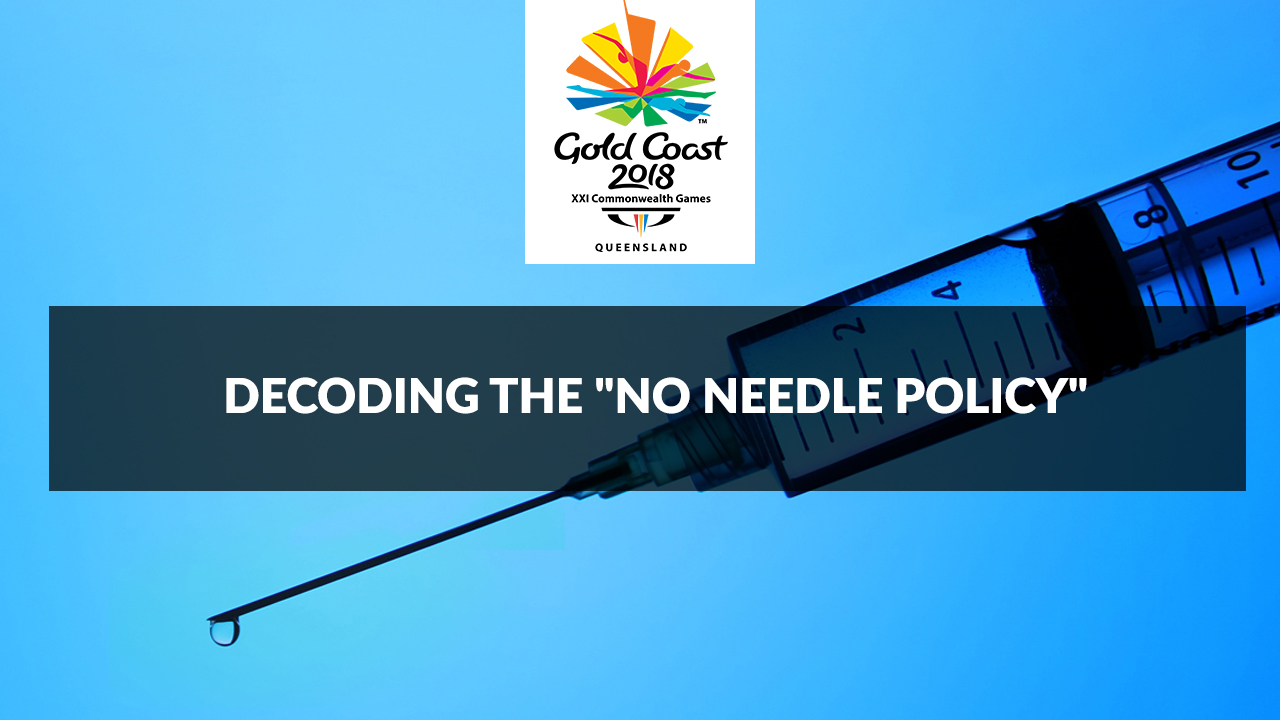Begin typing your search above and press return to search.
Commonwealth Games
Are athletes in Gold Coast aware of the "No needle policy"?

Very recently, the World Anti-Doping Agency (WADA) announced the intention to send a 3-member independent team to the Commonwealth Games to scrutinise and properly study all aspects of drug testing at Gold Coast. They would be present with their main function being to implement the Commonwealth Games Federation's standards for anti-doping in addition to providing a comprehensive feedback on how the entire process was carried out. The Gold Coast games were declared to be a cheat-free zone with executives coming out and saying that this stricter implementation of laws would aim to restore confidence "in a shattered system". A program called the Gold Coast 2018 High Integrity Anti-Doping Partnership was officially launched with the opening of the Commonwealth Games Village aimed at ensuring a technically sound and strategic approach to testing. This testing would be focused on several quarters- medalists as well as intelligence received from the task-force. Also read: WADA publishes list of Prohibited Substances and Methods for 2018 A couple of days earlier, the integrity and efficiency of the latter kind of testing came into the limelight after reports of used syringes found outside or near the rooms which housed a part of the Indian contingent started surfacing. According to the Commonwealth Games Federation's Anti-Doping guidelines, specific measures were set in case needles and syringes were found. The tip-off in this particular case came reportedly from the housekeeping staff and the part of the Indian contingent which came under the scanner was the boxing contingent. As per what is known last, all 12 members of the Indian boxing squad have been subjected to routine testing in addition to signing an agreement which declares that they have no more syringes or needles in their possession. Indian Olympic Association secretary general Rajeev Mehta and team manager Ajay Narang have stayed consistent on their insistence that Indian athletes are not guilty of any wrongdoing and that it was a person from the Indian delegation who discovered the needles in the first place. A couple of things still remain murky. But to clear them all, a look at two things is necessary. Firstly, it is important to remind ourselves that India have previously been warned on their wrong usage of needles at the Glasgow Games in 2014 too after syringes were discovered wrongly disposed near an accommodation housing a wrestler and a para-athlete. Similar warnings were dealt out during the Rio 2016 Olympics too. Basically, this is not the first time that delegations from the country have been under the scanner for the wrong reasons.  Gold Coast 2018 was declared a needle-free zone; which makes the alleged offense of Indian athletes all the more grievous should any charge be specifically proven. A quick look at the No needle policy in place states two exceptions to the rule outright. Needles may not be used except in cases of:
Gold Coast 2018 was declared a needle-free zone; which makes the alleged offense of Indian athletes all the more grievous should any charge be specifically proven. A quick look at the No needle policy in place states two exceptions to the rule outright. Needles may not be used except in cases of:
 Gold Coast 2018 was declared a needle-free zone; which makes the alleged offense of Indian athletes all the more grievous should any charge be specifically proven. A quick look at the No needle policy in place states two exceptions to the rule outright. Needles may not be used except in cases of:
Gold Coast 2018 was declared a needle-free zone; which makes the alleged offense of Indian athletes all the more grievous should any charge be specifically proven. A quick look at the No needle policy in place states two exceptions to the rule outright. Needles may not be used except in cases of: - "medically qualified practitioners for the clinically justified treatment of injury, illness or other medical conditions"- this, however, requires the submission of a Therapeutic Usage Exemption form which, ideally, should have been submitted and cleared by the Commonwealth Games Federation before the opening of the Commonwealth Games village.
- "those requiring auto-injection therapy for an established medical condition." This also requires a valid TUE.
Next Story

